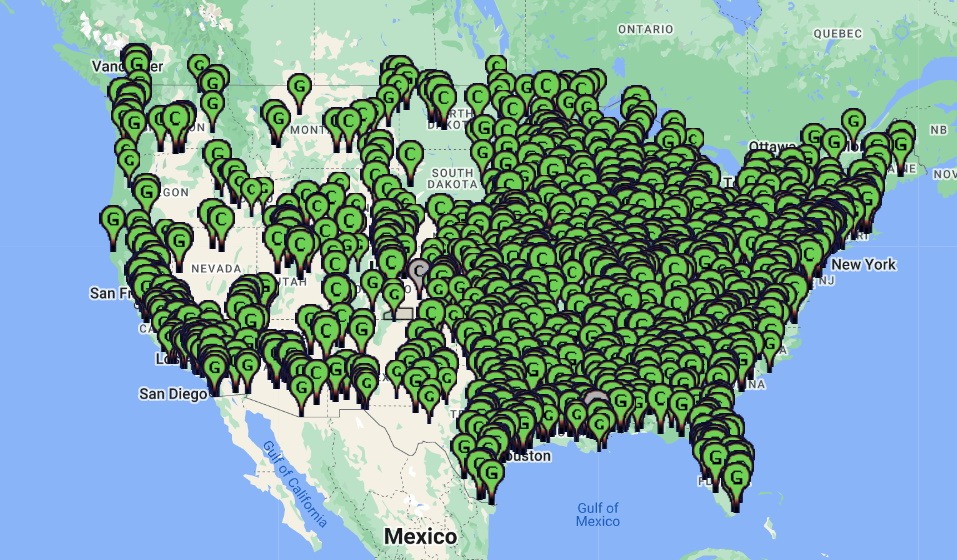Tag: renewable energy
-
Spatial Justice Tests
– by Aaron Kreider, Energy Justice Network One of the main goals of Energy Justice Network’s Justice Map project is to demonstrate the role that income and race play in the siting of dirty facilities. You can use Justice Map (by clicking on Advanced Mode) to analyze the race and income of people who live within, say,…
-
Waste Done Right
– by Ruth Tyson, Energy Justice Network In 2012, Americans disposed of 251 million tons of trash, according to the U.S. Environmental Protection Agency (EPA). The Story of Stuff Project neatly lays out the way materials move through our economy from extraction to production, distribution, consumption, and disposal. Most consumers don’t think beyond the “consumption”…
-
Study: Thinning Forests for Bioenergy Can Worsen Climate
A new study out of the Geos Institute in Ashland, Oregon concludes that selectively logging or “thinning” forests for bioenergy can increase the amount of carbon dioxide in the atmosphere and exacerbate climate change. The study, “Thinning Combined With Biomass Energy Production May Increase, Rather Than Reduce, Greenhouse Gas Emissions,” by D.A. DellaSala and M. Koopman, challenges…
-
Biomass Power Facilities Idle for Months
One of biomass energy’s main selling points is that it’s a baseload source of energy available 24/7, unlike solar and wind. Despite these promises–and hundreds of millions of dollars of taxpayer subsidies, grants and loans–several biomass power facilities across the U.S. have been sitting idle for months at a time, thanks to fires, equipment failure,…
-
Compost Chicken Manure, Don’t Burn It
– by Mike Ewall, December 19, 2014, Baltimore Sun Dan Rodricks’ recent column urged the new governor to get a large-scale poultry waste incinerator built on the Eastern Shore (“Larry Hogan has a chance to be a green governor,” Dec. 13). This awful idea has been floated for 15 years now and has gone nowhere despite an array…
-
AUDIO: Energy’s Water Footprint in the Western Drought
Drought in the western U.S. is in the news every day, yet most media coverage ignores the impact from water withdrawals for industrial power facilities. While municipal and agricultural use are major drains on limited water resources, so too are biomass, coal, natural gas, and nuclear power facilities. On August 20, EJN spoke with Stacy Tellinghuisen,…
-
If You Build It, They Will Cut
Generating biomass energy doesn’t result in more logging, according to the biomass industry, whose spokespersons claim facilities only make use of “waste” wood already coming from existing logging operations. Ron Kotrba, Senior Editor for Pellet Mill Magazine, wrote in the May/June 2015 issue that biomass is the “most unlikely of the forest products to drive…
-
When Zero Waste is Environmental Racism
– by Kaya Banton, Chester Environmental Justice My name is Kaya Banton and I have been a resident of Chester, Pennsylvania all of my life. Chester is a small city right outside of Philadelphia known as one of the worst cases of environmental racism. There are a number of polluting facilities in and surrounding Chester.…
-
WE WON!! Environmental Justice Victory in DC, as Mayor Pulls Incinerator Contract
– by Mike Ewall, Energy Justice Network We just stopped Washington, DC from approving a $36-78 million contract that was awarded to Covanta to burn the District’s waste for the next 5-11 years. In a rigged bidding process, the city allowed just four incinerators (no landfills) to bid to take 200,000 tons of waste a…
-
EJ Victory! Taking Responsibility for Where Your Trash Goes…
– by Mike Ewall, Energy Justice Network I’m excited to open this issue by sharing our first victory of its kind: stopping a major city (Washington, DC) from signing a long-term incineration contract that was expensive, polluting, unhealthy, and racist. The worst thing that can happen with your waste is for it to be burned.…
EJ Communities Map

We are mapping all of the existing, proposed, closed and defeated dirty energy and waste facilities in the US. We are building a network of community groups to fight the facilities and the corporations behind them.
Related Projects
ActionPA
EJnet
Corporations
Race & Class Census Map
